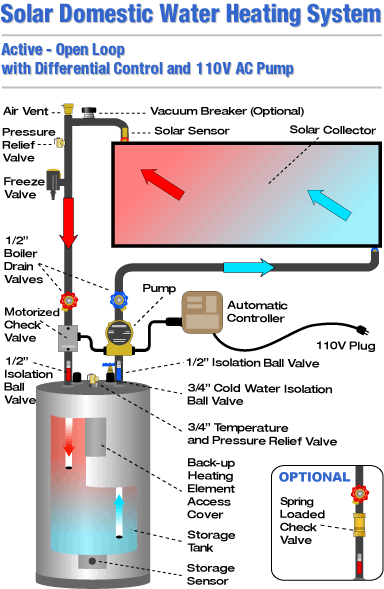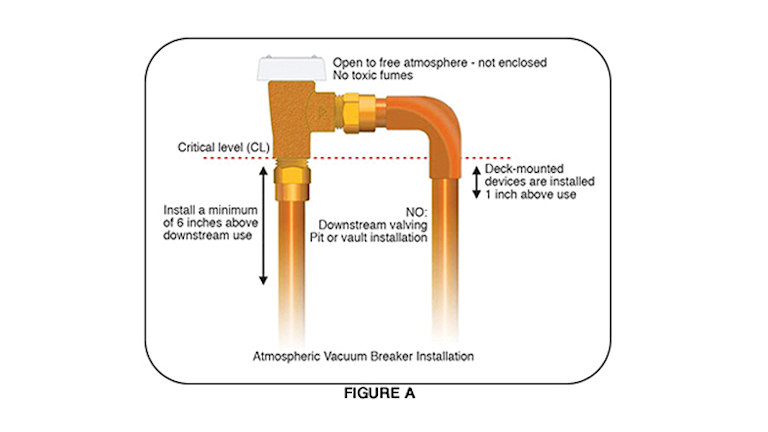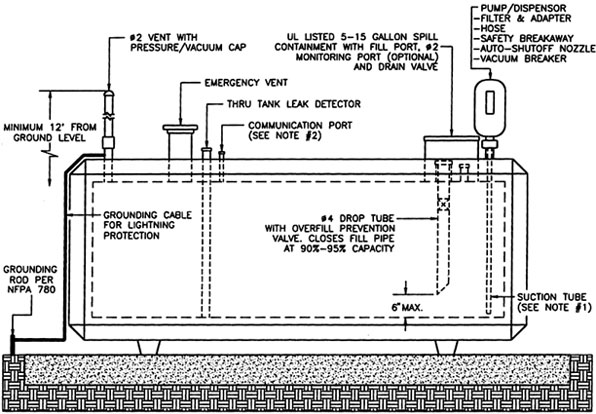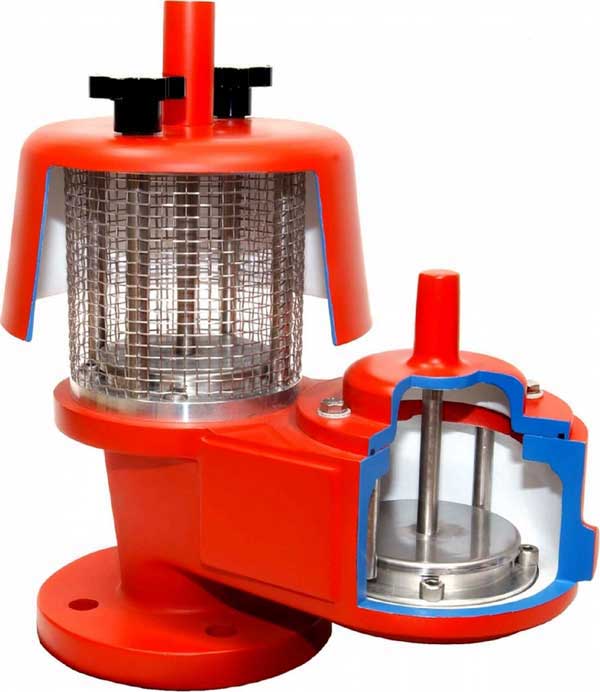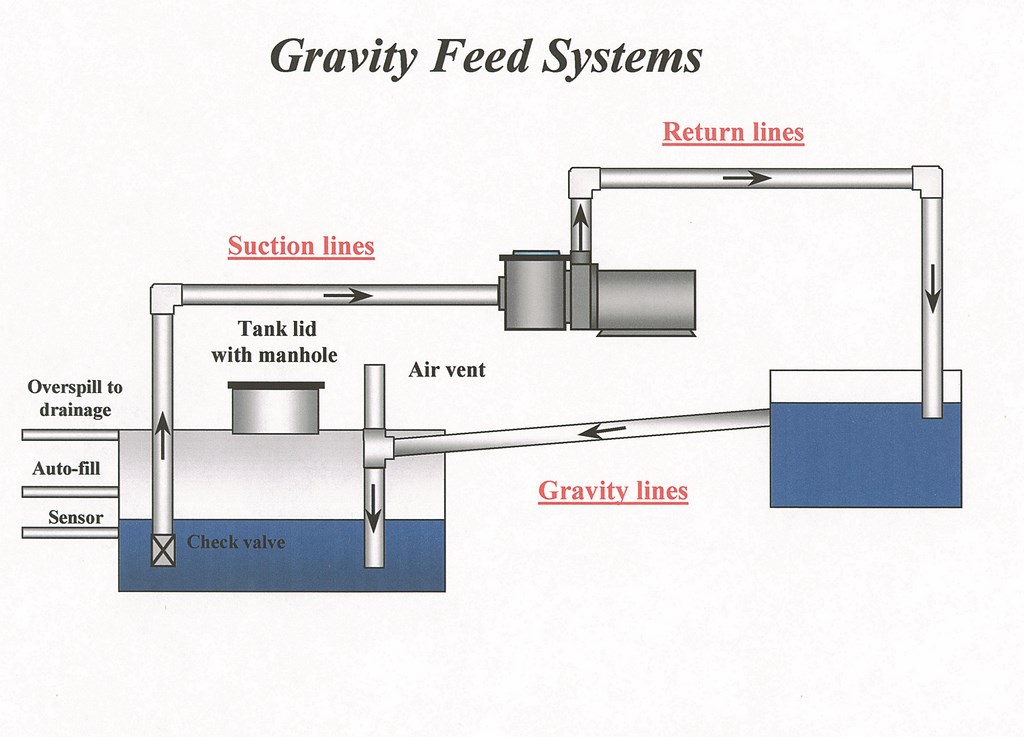Series vb vbm patented diaphragm design assures dependable repetitive bubble tight sealing to protect enclosed tanks from collapse or structural damage during draining.
Vacuum breaker storage tank.
The tank s vapor space pressure vacuum works in opposition to the force weight or spring applied to the pallet assemblies.
The 200 vacuum breaker opens gradually to admit outside air to relieve the vacuum in the tank.
Typical leg actuated vent top with vacuum breaker closed left and open right venting types and.
Pressure vacuum relief valves are protection devices typically mounted on a nozzle opening on the top of a fixed roof atmospheric storage tank.
Venting of aboveground storage tanks is one of the most difficult aspects of tank engineering to understand.
1 2 3 4 and 1 in a wide range of materials and connection types.
Their primary purpose is to protect a tank against rupture or implosion by allowing the tank to breathe or vent when pressure changes in the tank due to normal operations.
Features iron steel or stainless steel body iron steel or stainless steel seat.
The tank s vapor space is always maintained within the safe range of its pressure and vacuum operating design limits.
Tank vents and hatches tools.
Falling liquid levels and condensing steam can cause a vacuum that can damage a tank.
Once the excess pressure or vacuum condition has been relieved the pallet assemblies reseal automatically.
Lock down hatches provide secure access to storage tanks without pressure or vacuum relief capability.
Spare parts minimize variability reduce costs and increase safety and production by choosing genuine oem spare parts.
Falling liquid levels and condensing steam can cause a vacuum that can damage a tank.
The unit must be installed vertically with its mounting connection downward.
Proper venting of tanks and vessels is essential to conserve product reduce emissions and minimize hazards to people and equipment.
The vacuum breaker is mounted at critical pipeline high points penstocks or tanks and allows for rapid inflow of atmospheric air to reduce vacuum conditions in piping systems.






